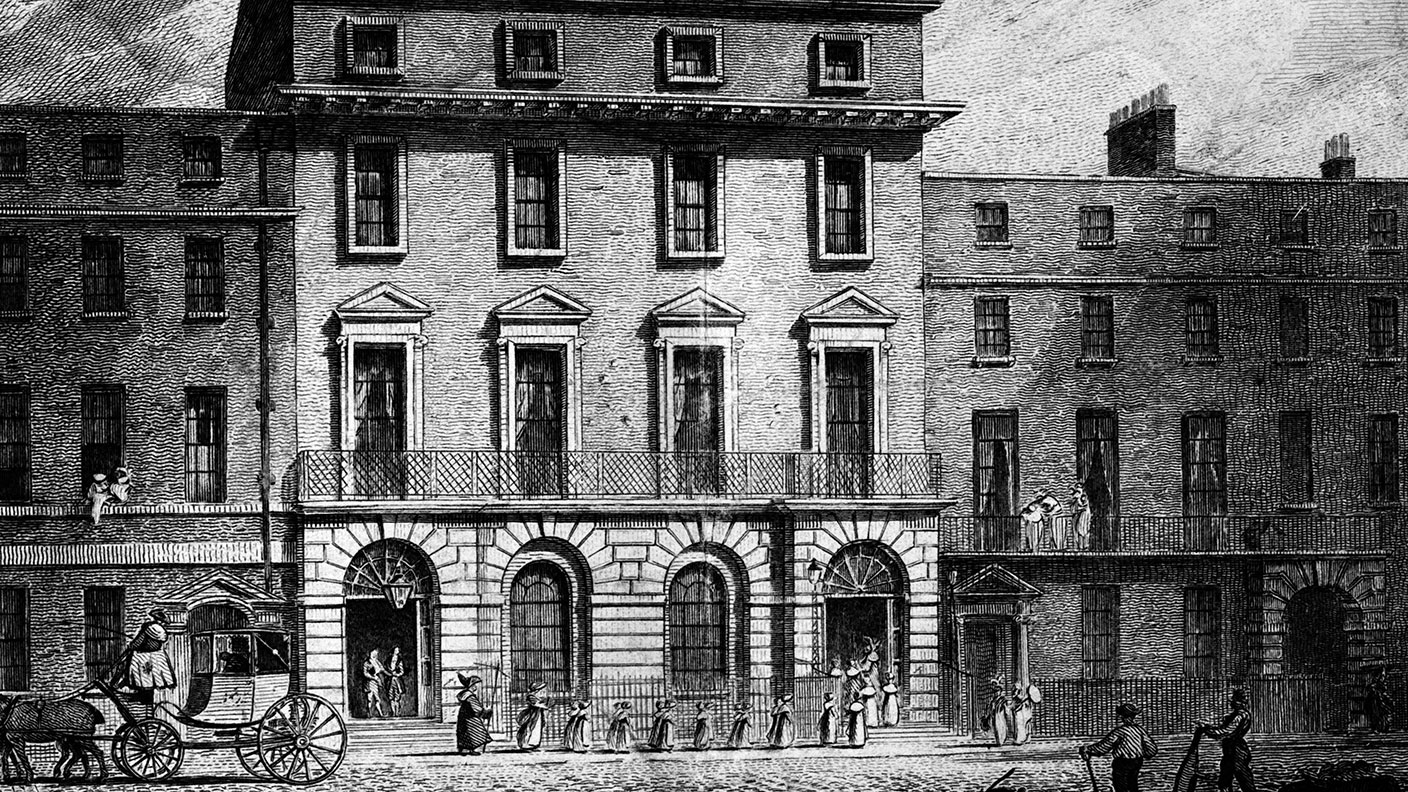
Get the latest financial news, insights and expert analysis from our award-winning MoneyWeek team, to help you understand what really matters when it comes to your finances.
You are now subscribed
Your newsletter sign-up was successful
Want to add more newsletters?

Twice daily
MoneyWeek
Get the latest financial news, insights and expert analysis from our award-winning MoneyWeek team, to help you understand what really matters when it comes to your finances.

Four times a week
Look After My Bills
Sign up to our free money-saving newsletter, filled with the latest news and expert advice to help you find the best tips and deals for managing your bills. Start saving today!
The rules of football are pretty straightforward, you'd think: kick the ball in the goal, and don't use your hands. Even the offside rule isn't particularly difficult to grasp if you make even the slightest effort.
But it took a surprisingly long time to settle on a standard form of play.
Ebenezer Morley was a Yorkshireman, a solicitor, and the founder of Barnes FC in southwest London. At the time, there were a lot of arguments about what the rules should be. So Morley invited representatives of 12 London clubs to form an association to govern the game. A meeting was set for Monday 26 October 1863 at the Freemasons' Tavern in Great Queen Street, and the Football Association was born.
MoneyWeek
Subscribe to MoneyWeek today and get your first six magazine issues absolutely FREE

Sign up to Money Morning
Don't miss the latest investment and personal finances news, market analysis, plus money-saving tips with our free twice-daily newsletter
Don't miss the latest investment and personal finances news, market analysis, plus money-saving tips with our free twice-daily newsletter
After six meetings, the FA came up with 13 rules, which were approved and written down in the FA Minute Book on 8 December. But they were a little different to the current rules.
For a start, the goal had no crossbar – a goal counted no matter how high it crossed the line between the posts. There was no goalkeeper. Teams changed ends after each goal scored. Players were allowed to make a “fair catch” – if they caught the ball cleanly, they were awarded a free kick (much like Australian Rules football today, perhaps). Throw-ins had to be at right angles to the touchline. And if the ball went behind the goal, things got complicated, and could end up with the attacking team being awarded an unopposed free kick in front of the goal. And the offside rule wasn't introduced until 1866.
By 1871, the FA counted 50 clubs who had paid the annual £1.1s membership fee. Charles Alcock decided it would be a good idea for a Challenge Cup to be established "for which all clubs belonging to the Association should be invited to compete". And so the FA Cup was born.
Alcock also came up with the idea of the first international match, and on 5 March 1870, England played Scotland at the Oval cricket ground, with the result a 1-1 draw. Oddly, because the Scottish players were based in London, Fifa doesn't recognise this as a proper international match. The first "official" international match took place between Scotland and England in Glasgow in 1872.
Get the latest financial news, insights and expert analysis from our award-winning MoneyWeek team, to help you understand what really matters when it comes to your finances.

-
 Should you buy an active ETF?
Should you buy an active ETF?ETFs are often mischaracterised as passive products, but they can be a convenient way to add active management to your portfolio
-
 Power up your pension before 5 April – easy ways to save before the tax year end
Power up your pension before 5 April – easy ways to save before the tax year endWith the end of the tax year looming, pension savers currently have a window to review and maximise what’s going into their retirement funds – we look at how
-
 31 August 1957: the Federation of Malaya declares independence from the UK
31 August 1957: the Federation of Malaya declares independence from the UKFeatures On this day in 1957, after ten years of preparation, the Federation of Malaya became an independent nation.
-
 13 April 1960: the first satellite navigation system is launched
13 April 1960: the first satellite navigation system is launchedFeatures On this day in 1960, Nasa sent the Transit 1B satellite into orbit to provide positioning for the US Navy’s fleet of Polaris ballistic missile submarines.
-
 9 April 1838: National Gallery opens in Trafalgar Square
9 April 1838: National Gallery opens in Trafalgar SquareFeatures On this day in 1838, William Wilkins’ new National Gallery building in Trafalgar Square opened to the public.
-
3 March 1962: British Antarctic Territory is created
Features On this day in 1962, Britain formed the British Antarctic Territory administered from the Falkland Islands.
-
10 March 2000: the dotcom bubble peaks
Features Tech mania fanned by the dawning of the internet age inflated the dotcom bubble to maximum extent, on this day in 2000.
-
9 March 1776: Adam Smith publishes 'The Wealth of Nations'
Features On this day in 1776, Adam Smith, the “father of modern economics”, published his hugely influential book The Wealth of Nations.
-
 8 March 1817: the New York Stock Exchange is formed
8 March 1817: the New York Stock Exchange is formedFeatures On this day in 1817, a group of brokers moved out of a New York coffee house to form what would become the biggest stock exchange in the world.
-
7 March 1969: Queen Elizabeth II officially opens the Victoria Line
Features On this day in 1969, Queen Elizabeth II took only her second trip on the tube to officially open the underground’s newest line – the Victoria Line.
